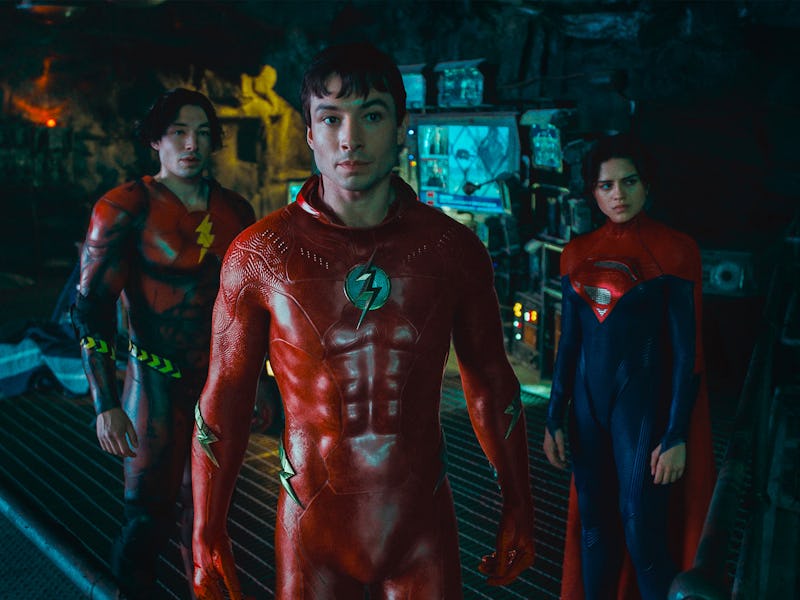Here's Why The Flash Changes the Darkest Twist in the Original Comic
The latest DC film borrows from Flashpoint, but not as much as fans might think.

Despite beaucoup delays, behind-the-scenes drama, and an unwieldy, troublesome star, fans have been awaiting The Flash with bated breath. It helped that the DC film was set to adapt one of the most famous comic book storylines of all time: Flashpoint, the 2011 event that sees the scarlet speedster grappling with a multiversal crisis after a time travel trip gone wrong.
Flashpoint has been adapted twice before, in an animated Justice League film from 2013, as well as in the Flash series set in the CW’s Arrowverse. The former is the most faithful of the now three adaptations, as The Flash director Andy Muschietti took a few liberties with the source material.
“We didn't want to give the audience a literal adaptation of the comic book,” Muschietti recently told EW. “As much as some people would've liked to see that literal adaptation ... I think that they will be gratified by seeing that the story takes another direction.”
Barry Allen teams up with an unlikely Batman variant — but it’s not the same Batman seen in Flashpoint.
While The Flash still follows Barry Allen (Ezra Miller) as he travels back in time and ends up in an alternate universe, that’s where things start to diverge. In the original storyline, Barry finds himself in a world where the Justice League never formed, and key members of the superteam never became the heroes they were meant to be. This universe’s Barry never got his speedy powers, the U.S. government imprisoned Superman, and Bruce Wayne was murdered in the robbery that claimed his parents’ lives in other timelines.
But that’s not to say this world is without a version of Batman. While Bruce meets an untimely death, it’s his father, Thomas Wayne, that eventually dons the cape and cowl. Justice League: The Flashpoint Paradox introduced a bleak and brutal vigilante that later teams up with the Flash to restore the natural order.
Thomas Wayne already had a brief appearance in the DCEU: Jeffrey Dean Morgan cameoed as the character in Zack Snyder’s Batman V Superman: Dawn of Justice. Given Snyder’s enthusiasm for Flashpoint — and the fact The Flash is borrowing from so many other DC films — fans wondered whether Muschietti would pick up the threads Snyder left behind. However, the director wanted to go in another direction.
To Muschietti and his producing partner (and sister) Barbara Muschietti, Flashpoint reads “more like a mystery” compared to the story they wanted to tell. The Muschiettis wanted to focus on Barry’s bond with his parents. The whole reason Barry traverses time is to prevent his mother’s murder, and thwart his father’s wrongful implication in the crime. “That’s the anchor of the film,” Barbara Muschietti told EW. “Had we not had enough of that, to service other parts of the comic, it would’ve been a different movie.”
The Flash is still bringing remixed versions of Batman into the film. Michael Keaton’s own dark knight, who starred in Tim Burton’s late-’80s duology, suits up to help Barry and their timeline’s resident Kryptonian, Kara Zor-El (Sasha Calle). It’s a much lighter alternative to the events of Flashpoint, one that plays on nostalgia rather than challenging the status quo. Whether that choice works is up to the viewer, but the Muschiettis are satisfied with the result.